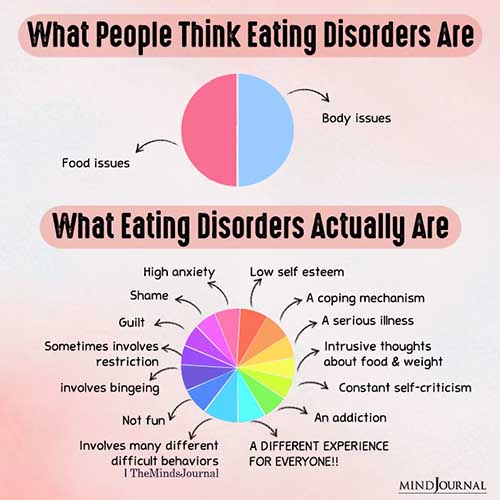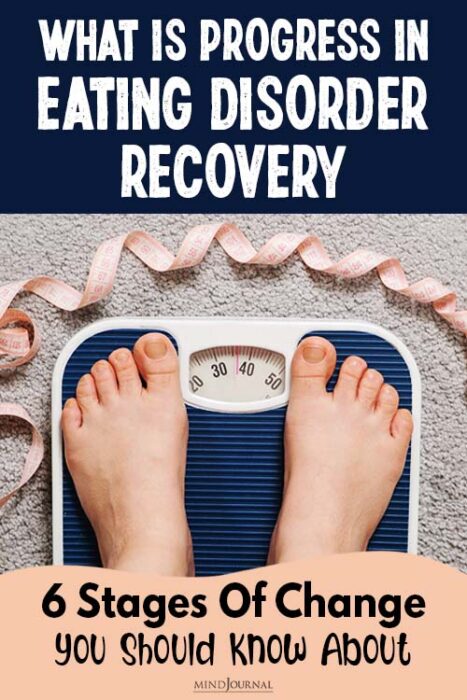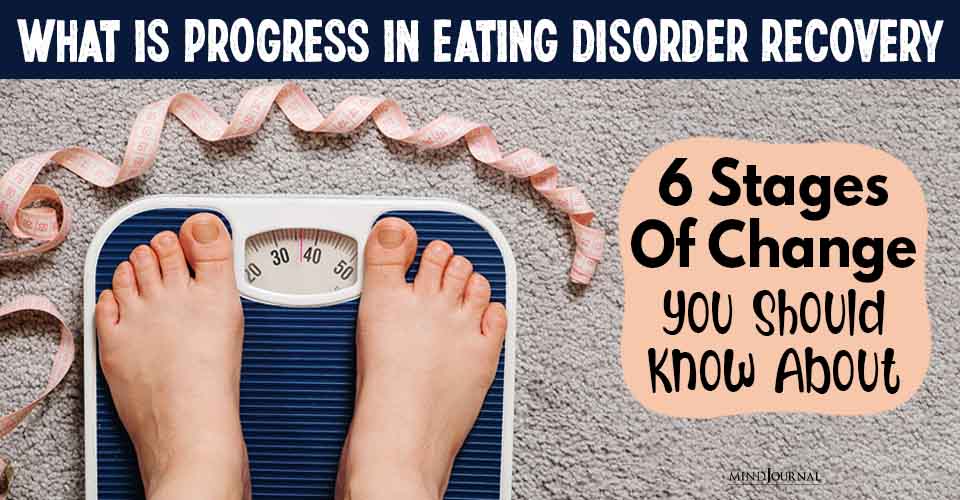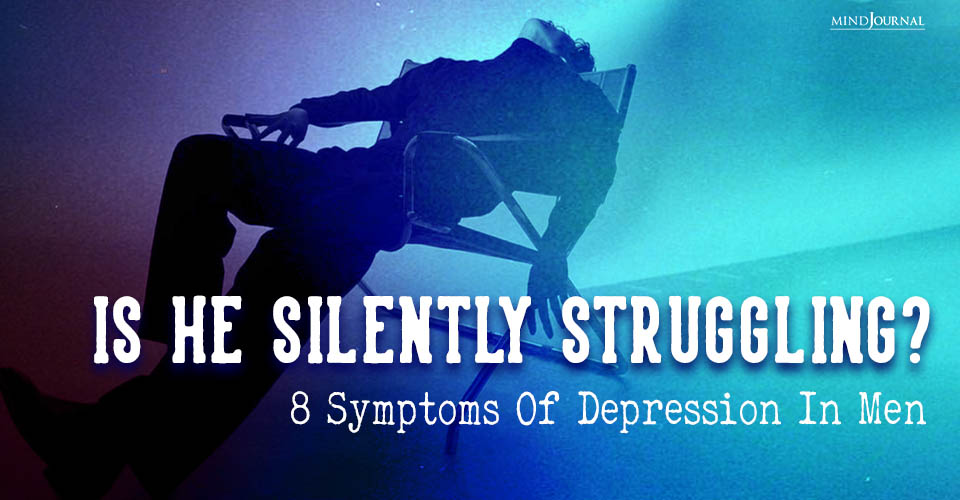Eating disorder recovery isn’t a straight path; it’s more like a journey with ups and downs. Understanding the stages of change can make it easier to navigate. Let’s dive into the six key stages of eating disorder recovery you should know about.
KEY POINTS
- Recovery is frequently not a linear process.
- Scare tactics usually don’t get someone with an eating disorder to believe they’re at risk of danger.
- A person in the process of healing doesn’t go back to zero if they need to revisit earlier stages of change.
Gauging progress in eating disorder recovery can be confusing, especially for those watching the process. One day, your loved one seems on track for healing. Then, what happened?! They appear “back to square one.” Parents, caregivers, or spouses (“carers”) tend to panic about that.
The stages of change (Prochaska & DiClemente, 1983; Raihan & Cogburn, 2023) may help carers conceptualize eating disorder recovery. A few people with eating disorders might progress through them linearly (in order).
However, that’s probably rarer than progressing circularly at times—meaning looping back to earlier stages.
Related: 30+ Truths About Diet Culture, Eating Disorders, And The Process of Healing
Stages Of Eating Disorder Recovery
1. Precontemplation
In this phase, your loved one does not recognize their problem. If you address it, you may hear something like, “You’re overreacting.”
There are many reasons the person believes that. For example, often an eating disorder starts with what seems like a positive goal (e.g., improving their health or diet). The pursuit of the goal flips to an extreme, and instead of realizing they’ve developed a clinical eating disorder, they tend to believe they’re failing at reaching their goal.
They often think they need to do better, try harder, or be stricter. Further challenging things, our society frequently applauds them for their appearance of discipline and commitment to “health” or weight management.
To press forward in healing, your loved one will need to overcome at least some of their lack of awareness or denial about their disorder.
For example, maybe they mentally log enough negative or uncomfortable consequences to begin to believe there might be a problem (e.g., getting caught sneaking food, missing social events, or getting tired of constantly thinking about food).
When carers use scare tactics (“You could die!”), it’s usually ineffective at convincing the person that something is wrong. Instead, your curiosity might help your person experience some beneficial cognitive dissonance.
Overall, educating yourself on eating disorders and expressing loving concern might be your most potent helpers.

2. Contemplation
In this stage, a person may admit to having an eating disorder. They might call it something less severe like “disordered eating,” “emotional eating,” “maybe a little too much exercise,” or “a little problem.”
As it developed, your person’s eating disorder started serving various functions for them—helping them. By now, those functions are well-established.
For example, maybe the eating disorder reduces their anxiety, puts order in their life, provides distraction from painful events, makes them feel safer socially/fit in more, or offers coping (maladaptive, but works nonetheless).
They may think, “It would probably be good if I fixed this, but…” Altering their eating-disordered ways could seem too frightening, limiting, or even counterproductive to their original goals. Also, many people with eating disorders often believe they’re not “sick enough” to warrant help.
Moving beyond contemplation may happen for a number of reasons: the negative consequences of their eating disorder attitudes and behaviors get their attention. Maybe they acquiesce to a loved one’s concern about them. Or something else happens to push forward.
During this stage, it may be particularly helpful for carers to ask process-oriented questions. “What’s this like for you?” “How do you feel that helps your life?” If they engage, it gives more opportunities to grapple with their potential dilemma.
3. Preparation
The person is often unsure how or what to change at this stage. Still, they’re trying to plan for it. For example, they may be researching treatment approaches, reading self-help books, listening to podcasts, and scrolling eating disorder-related social media.
To reach the next stage, something from inside, outside, or both pushes them to be open to more action than prepping and research. Sometimes, it’s keeping a promise to someone. And sometimes, it’s a want for some change.
Their age and level of independence will affect how you can best help your loved one. In this stage, they may benefit from you offering to support however they feel could be helpful (e.g., finding qualified specialist therapists or treatment facilities).
Related: 15 Ways To Keep Your Child From Developing An Eating Disorder
4. Action
“I’m not ready!” might be heard. This stage can be terrifying. Especially here, people with eating disorders sometimes loop back to earlier stages.
If they stick to it, though, the action stage offers much growth on behalf of the significant change their disorder usually still does and does not want: healing.
For example, with help, they figure out some of the adaptive functions their eating disorder has served for them. They learn about and practice healthier ways to fill those needs or wants.
They’re also typically practicing abstaining from behaviors (or trying to), eating for nutritional rehabilitation, and working to change the obsessions and compulsions inherent to eating disorders.
They have to ask for support and help. They may need to unlearn life-long beliefs about self, others, and more. They face fears and often jones for their old, seemingly simpler ways.
To reach the next stage, they have to learn to trust the new beliefs, skills, and behaviors without resorting to the eating disorder. That may be a gradual process. So much relies on internal shifts, which can be unnoticeable to those observing.
They have a lot of hard things to do in this phase. Validating their feelings could provide especially needed emotional support (e.g., “That sounds scary”). Also, inquire about how you might support them.
5. Maintenance
During maintenance, you could hear your person continuing to sound a lot like they did in action. Their recovery-based beliefs and behaviors might not yet be habits. A shift from the action to maintenance stage can seem indiscernible at first.
Whatever healing has been established and practiced already tends to deepen and become more routine—rather than requiring intense focus. However, your person may not be done with earlier stages of change.
For example, my colleague had been in maintenance for some time. When their friend shared concern regarding something eating-disorder related, this colleague looped back to contemplation. They had to work through earlier stages again in addressing their behavior.
But was that “square one”? Some might have thought it looked like it, but no. That loopback added more recovery solidity and skills on top of all that they’d already been doing for years.
6. Termination
Raihan and Cogberg (2023) summarize this stage as “difficult to achieve: ‘zero temptation for relapse and the achievement of 100% self-efficacy.’” Termination represents the full recovery often possible in time. Some may strive for this stage. Others don’t realize they unwittingly evolved into living it.
Bottom Line on Progress
Looping back to an earlier stage doesn’t mean your person’s recovery is back at zero. It can mean that something overwhelmed their coping, they added a new healing focus that needs work, the eating disorder is fighting them right now, or something else.
Related: When Healthy Eating Goes Wrong: 9 Alarming Orthorexia Signs You Can’t Afford To Ignore
Looping back to earlier stages of change is quite natural. Rest assured. It cannot erase the healing skills and understandings already built, making a true “back at square one” implausible.
*Thank you to Jessica Hudgens for your contributions to this article. This article is for informational purposes only and does not constitute professional advice or therapy.
References:
Prochaska, J. O., & DiClemente, C. C. (1983). Stages and processes of self-change of smoking: Toward an integrative model of change. Journal of Consulting and Clinical Psychology, 51(3), 390–395. https://doi.org/10.1037/0022-006X.51.3.390
Raihan N, & Cogburn M. (2023). Stages of Change Theory. [Updated 2023 Mar 6]. In: StatPearls [Internet]. Treasure Island (FL): StatPearls Publishing. https://www.ncbi.nlm.nih.gov/books/NBK556005/
Written By Alli Spotts-De Lazzer
Originally Appeared On Psychology Today














Leave a Reply
You must be logged in to post a comment.